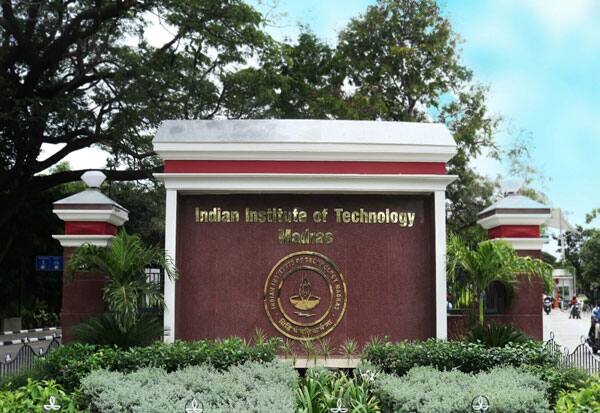/
செய்திகள்
/
Kalvimalar
/
News
/
IIT Madras files 417 patents in FY 2024-25, exceeds Director's vision of 'One Patent a Day' on World IP Day
/
IIT Madras files 417 patents in FY 2024-25, exceeds Director's vision of 'One Patent a Day' on World IP Day
IIT Madras files 417 patents in FY 2024-25, exceeds Director's vision of 'One Patent a Day' on World IP Day
IIT Madras files 417 patents in FY 2024-25, exceeds Director's vision of 'One Patent a Day' on World IP Day
UPDATED : ஏப் 25, 2025 12:00 AM
ADDED : ஏப் 25, 2025 11:05 PM

Chennai: Indian Institute of Technology Madras (IIT Madras) has filed 417 patents during the financial year 2024-25, surpassing Director Prof. V. Kamakoti's vision of 'One Patent a Day.' The milestone includes 298 Indian and 119 International patents, marking a significant achievement ahead of World Intellectual Property Day, observed on April 26.
In addition to patents, the institute also filed 39 design registrations, 6 copyrights, and 1 trademark, taking total IP filings to 463 for the year. Over the past five years, IIT Madras has licensed technologies worth Rs 28 crore to various start-ups, MSMEs, and corporates. The notable 5G RAN sub-system technology transfer to Tejas Networks (TATA Group) was among the largest.
Highlighting the role of IP in national progress, Prof. Kamakoti said, “For India to become a technology superpower by 2047, protecting intellectual property is key. I am proud of the IIT Madras community for achieving this milestone, particularly in international filings.”
Patents were filed across emerging sectors such as electronics, energy, healthcare, robotics, AI, and manufacturing. The Technology Transfer Office (TTO) played a vital role, doubling licensing revenue and facilitating over 30 technology deals in FY 2024-25 with companies like Tunga Aerospace, AspenTech, and ParvAI Labs.
Dean (ICSR) Prof. Manu Santhanam noted that IIT Madras leads in IP filings among Indian academic institutions. Advisor (IPM Cell) Prof. Prabhu Rajagopal added that a robust support ecosystem through the Office of Innovation and Entrepreneurship and Incubation Cell has been instrumental in encouraging deep-tech start-ups and innovation-driven research.
The structured IP process begins with submission of Invention Disclosure Forms and involves close collaboration with inventors to assess patentability, helping the institute foster a culture of innovation and protection of creative output.


